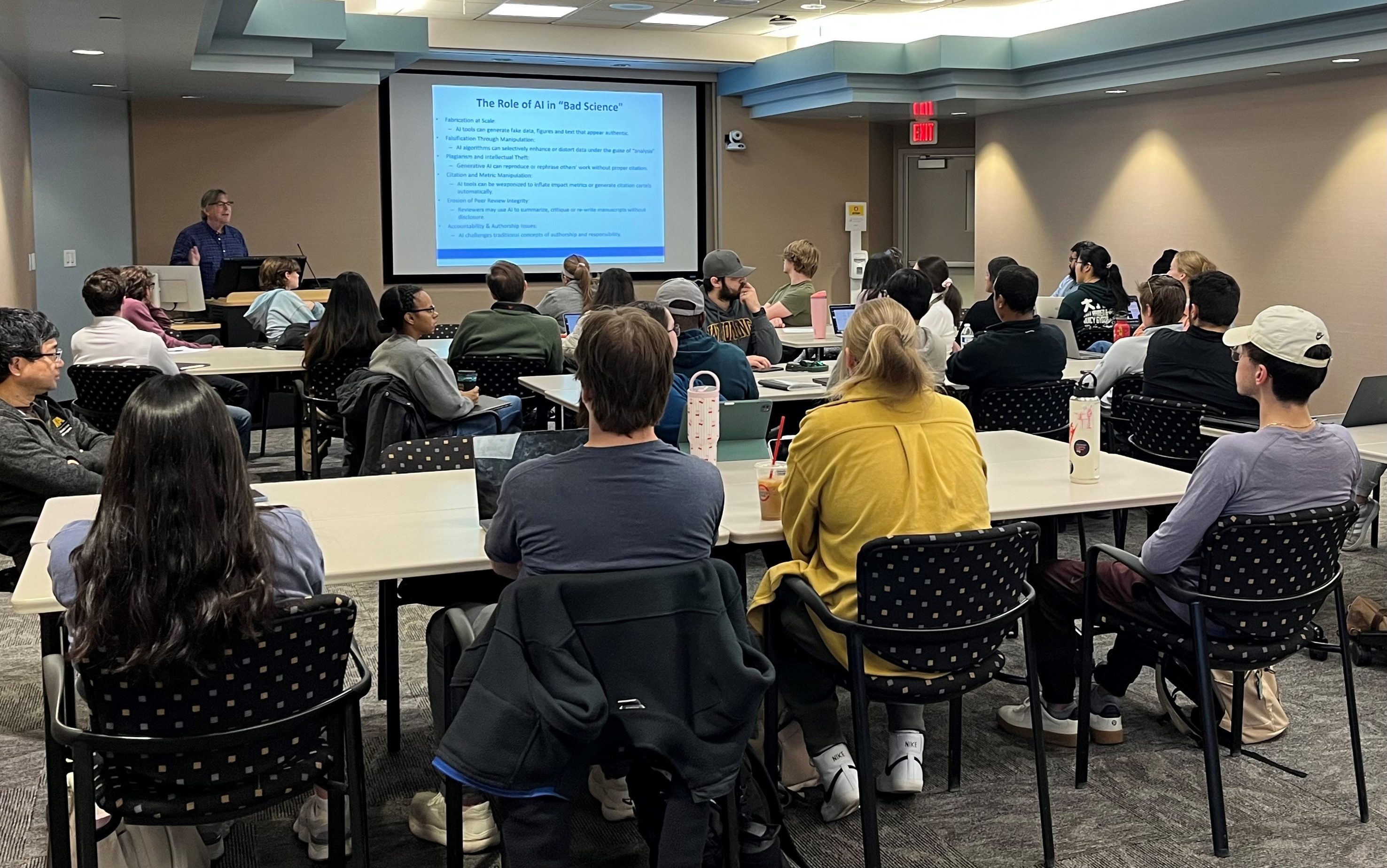Course Description
It is of great importance that every member of our scientific community be well-versed in research ethics and principles of integrity in research. In the Carver College of Medicine, we require all graduate students, postdoctoral scholars and faculty with K awards to receive formal training in this area. The OGPS achieves this through a two-course series called “Scholarly Integrity – Responsible Conduct of Research (SI/RCR),” designed to expand on and advance training in these principles.
As a prerequisite, all individuals taking these courses must have completed basic SI/RCR training through completion of CITI online training, CITI - Collaborative Institutional Training Initiative (citiprogram.org). Following verification of successful completion of all required CITI modules, graduate students, postdoctoral researchers (FP01/FP02), and NIH K-awarded faculty are eligible to request enrollment by contacting their departments or emailing Biomedical-SIRCR@uiowa.edu.
The required 2-semester series begins in the Fall and continues in the following Spring semester. Typically, postdocs and K award faculty complete all RCR training in their first year. Graduate students typically complete their CITI training in their first year and complete the BMED:7270-7271 course series in their second year. A refresher course is required four years after the start of the research project.
Fall 2025: BMED:7270 (graduate students) / :7604 (postdocs, faculty) - Scholarly Integrity / Responsible Conduct of Research 1
Spring 2026: BMED:7271 (graduate students) / :7605 (postdocs, faculty) - Scholarly Integrity / Responsible Conduct of Research 2
New Instructor to Oversee SI-RCR Course
Dr. Charles (“Chuck”) Yeaman earned his PhD in Cellular and Molecular Biology from the University of Wisconsin–Madison, followed by postdoctoral training at Weill Cornell Medicine and Stanford University. He joined the Department of Anatomy and Cell Biology at the University of Iowa in 2001, where he has led a continuously NIH-funded research program for over two decades. His laboratory investigates molecular mechanisms that govern the establishment and maintenance of epithelial cell polarity.
In addition to his research, Dr. Yeaman serves as Director of Graduate Studies for the Cell & Developmental Biology sub-program within the Biomedical Sciences Program. He is deeply committed to education, actively teaching both graduate and professional students. He has also been a long-standing faculty facilitator for the Scholarly Integrity – Responsible Conduct of Research course, and he is enthusiastic about expanding his contributions as he assumes the role of course director.
Schedule
There are 4 options for workshop schedules (Groups A, B, C, and D). You will be required to complete an online survey to rank order your preference of schedules at the beginning of each semester. Do not email your preferences. The link to the survey will be sent to all registered students via email and will be available on the ICON course website.
Fall 2025
Group A Monday 3:00 - 4:20 October 6, October 20, November 3, November 10
Group B Tuesday 3:00 - 4:20 October 7, October 21, November 4, November 18
Group C Wednesday 9:00 - 10:20 October 15, October 29, November 12, December 3
Group D Thursday 10:00 - 11:20 October 16, October 30, November 13, December 4
Spring 2026
Group A Monday 3:00 - 4:20 February 23, March 9, March 23, April 6
Group B Tuesday 3:00 - 4:20 February 24, March 10, March 24, April 7
Group C Wednesday 9:00 - 10:20 March 4, April 1, April 15, April 22
Group D Thursday 10:00 - 11:20 March 5, April 2, April 16, April 23

New course instructor, Charles Yeaman, PhD, introduces the topic of that session to the D group.
Course Format
The SI-RCR course is run collaboratively with administrative contributions from OGPS, facilitation support from CCOM faculty, and course directorship from Dr. Charles Yeaman. Dr. Yeaman is an accomplished researcher in Cell & Developmental Biology and is leading the course for the first time this year. Workshops are held in Seebohm Conference Room (283 EMRB) unless otherwise indicated. Please see the course web site for details.
Students must attend and participate in four 80-minute topical workshops each semester. Final course credit is assigned following satisfactory completion of all required workshops.
The workshops emphasize small group discussions and foster ongoing conversations that explore important aspects of ethical and responsible conduct of scholarly research. Core readings and case studies are assigned that cover all competency areas emphasized by NIH.
Fall semester topics focus on:
1) mentor/trainee responsibilities & relationships.
2) authorship and peer review; research misconduct (plagiarism, fabrication, & falsification).
3) data acquisition, management, sharing & ownership.
4) collaborative research and intellectual property.
Spring semester topics focus on:
1) human subjects in research.
2) animal welfare.
3) managing competing interests.
4) safe research environments; science in contemporary society.
All workshops are organized as facilitated small group discussions among 8-10 students with a faculty mentor. Each group is a multidisciplinary mix of grad students and postdocs with one faculty facilitator.
Postdocs offer additional depth of experiences to enhance the discussions with grad students. For each workshop, the course director introduces the ethical issues addressed in the case studies discussed in the small groups and leads a closing discussion that shares group input more broadly.
